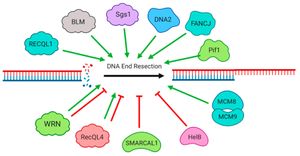The Federal Court of Justice (BGH) of Germany has made a landmark ruling against the use of negative interest rates on savings accounts, declaring such practices unlawful. This decision, delivered on February 4, 2025, has sent shockwaves through the banking sector, as it directly challenges the policies many banks implemented during the low-interest phase directed by the European Central Bank (EZB).
According to the court, the imposition of negative interest rates—often masked under terms like " Verwahrentgelt" or storage fees—contradicts the core purpose of savings accounts, which is to help individuals build their wealth over time and protect it from inflation. Judge Jürgen Ellenberger articulated this sentiment, stating, "It contradicts the principles of good faith if savings are reduced by negative interest rates." Consumers, having endured this financial burden over the past few years, may find some relief as they look toward potential refunds for fees previously charged.
Notably, this ruling came as consumer protection agencies, including Verbraucherzentrale Sachsen, Verbraucherzentrale Hamburg, and the Bundesverband der Verbraucherzentrale, filed lawsuits against various financial institutions such as Volksbank Rhein-Lippe, Sparda-Bank Berlin, Commerzbank, and Sparkasse Vogtland. The cases centered on whether banks could legitimately charge fees on deposits held on savings and time deposit accounts. The BGH's decision highlighted the legality of these fees, with emphasis on their failure to be transparent and fair.
During the hearings, the court acknowledged the necessity of clear communication with customers about potential negative interest, particularly concerning current account holders. Negative interest rates had become common as the EZB sought to encourage spending by lowering rates and even charging banks to store excess funds. Interestingly, findings from the consumer protection agencies indicated some banks began charging fees as early as 2020, creating significant backlash and prompting widespread lawsuits.
The ruling not only addresses the current situation but also paves the way for future interactions between banks and customers concerning negative interest fees. David Bode, from the Verbraucherzentrale Bundesverband, commented, "The long dispute over the permissibility of safe storage fees has largely ended well for consumers. We will keep an eye on the behavior of banks and examine other legal measures if refunds are not forthcoming." This watchfulness is particularly pertinent as the economic climate shifts, potentially reopening discussions on negative interest rates should the EZB revert its policy.
Indeed, customers might be entitled to refunds for fees they were charged during the negative interest era, raising questions on how banks will respond to the ruling. The Federal Court of Justice did not explicitly decide whether customers could reclaim these fees, leaving it to individual litigation. The uncertainty surrounding refunds manifests for customers who now seek clarity and action following the ruling. According to financial observations, if many customers pursue claims, it could lead to billions of euros being paid back by banking institutions—not to mention the reputational damage these banks may face.
Overall, the BGH’s decision reinforces consumer rights and curtails unwarranted financial practices by banks, empowering customers with the legal backing to challenge unfair charges. With the transition toward potentially low interest rates due to changing economic conditions, it’s clear consumers—previously dismissed—are now poised for possible compensations.
Should negative interest rates be reintroduced or continue to exist, observers suggest banks will need to tread cautiously, ensuring transparent and fair practices are followed to avoid falling afoul of this recent ruling. The outcome of this remarkable case serves as both a protective measure for consumers and as a warning to banks over their financial practices.



